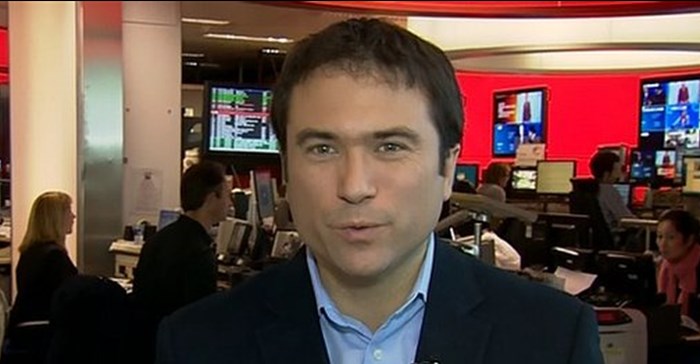[IAB Digital Summit 2016] Authenticity in digital publishing

He has also hosted from an array of locations, including an informal settlement in Soweto, a hospice in London, a prison in Indianapolis, a bookshop in Tel Aviv, a Nazi exhibition in Berlin, a maternity ward in Lagos and a classroom in Tanzania.
I had the pleasure of chatting to him at the IAB Digital Summit last week on the topic of his presentation: Authenticity in digital publishing…
1. You spoke at the IAB Digital Summit about authenticity in digital publishing. Elaborate a little on exactly what this means.
Atkins: There’s a long-term thing and a short-term thing at play here. The long-term thing is that for as long as media has been around, the people who most successfully communicate are the ones the audience can tell are being themselves and are being true to their journalism, to their ethics, to the brand they may represent. People who try and distort that tend not to be seen as trustworthy communicators. That principle existed long before the internet came along. With the internet, the digital arena is now everyone’s arena. When I’m on the TV, the BBC is in complete control of that environment. When I’m on the radio, the same. When I’m online, the reverse is true. We are not in control to any degree – we can have control on our website, but if we go onto Facebook or Twitter or Instagram or wherever else it might be, that is someone else’s arena where everyone exists. If you aren’t authentic when everyone else is trying to be, people are going to suss it out – they’re not going to trust you, they’re not going to want to hear from you because they’ll be aware that you’re trying to pull a manoeuvre of some form and they are much, much more likely to respond to a journalist if they feel that what they are getting is what they’d get if they met you. I’d always measure my success as a broadcaster and a journalist by how similar I seem on the radio, TV or online to how I am when people meet me.
2. As a regular visitor to South Africa, what’s your view on our authenticity of social media?
Atkins: I’m not sure it’s any different here than it is in any other country. Some people use it, the majority don’t. I think we can easily lose sight of the fact that Twitter, for instance, is very popular for a minority of people, whether it is for South Africa or for the UK, but the majority of people don’t use it at all. That said, I think social media can offer authentic insights into how people feel. That doesn’t mean we can treat it as a scientific survey of opinion, but I use social media for clues to help me understand what people think, why they do what they do and why they believe what they believe. Social media is a very effective way for people to share their individual experiences and for a journalist I think there are lots of clues there that lead you to people, events and beliefs to help you understand every issue you’re reporting on.
3. What is your view of the vitriol so often witnessed on Twitter?
Atkins: Clearly some people aren’t very pleasant when they get to the pub. When they are on Twitter, the anonymity of being online and the fact that it’s easy to be rude to someone you’re not sitting face to face with means people really feel able to offload. But – and that’s a very big but – just because some people are very angry and think it’s appropriate to communicate that anger in vulgar terms directly to individuals, doesn’t mean that we’re not seeing sincere and authentic expressions of passion, whether it is anger, sadness, happiness, or enthusiasm, and we can’t wish this development away. Social media is real and very much part of people’s lives, and people’s online emotions and people’s online identity is increasingly a core part of their overall identity.
Interesting times. Click through to our IAB Digital Summit & Bookmark Awards special section for more on all things digital.


































